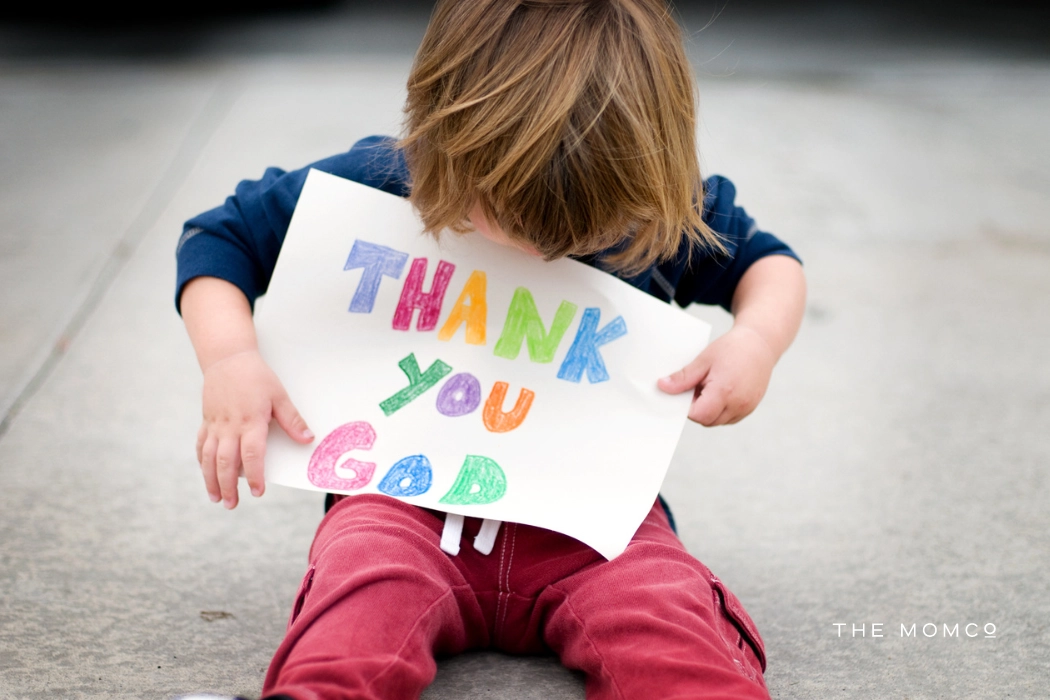
Young children are still developing their understanding of gratitude and abstract concepts like thankfulness. But that doesn’t mean you can’t start teaching them to be grateful from an early age! Here are some fun and simple activities to try with your little ones:
Listing What You’re Grateful For
- Have your child identify things they are thankful for, like family, pets, toys, food, etc. Help them articulate “I am grateful for…” as you write down their ideas.
- Make a daily gratitude list together at bedtime or before meals. Let your child decorate it with stickers or drawings.
- Take photographs of your child with the people, places and things they are grateful for. Compile into a gratitude photo book or collage.
Thank You Notes
- Have your child draw appreciation pictures or handprint art and “mail” them to people like grandparents, teachers etc.
- Let your child pick out note cards at the store and write thank you notes for gifts, kind gestures or after visiting someone’s house. Sign their name and deliver or mail them.
Gratitude Jar
- Decorate a jar together and label it “Gratitude.”
- Have your child write down or dictate short notes about things they are grateful for and put them in the jar.
- Read the notes together on occasions like Thanksgiving or birthdays.
Starting gratitude practices early helps nurture thankfulness and appreciation in your child’s daily life. Make it fun and consistent by integrating gratitude activities into your regular family routines.
Gratitude Games for Older Kids
As children grow older and their perspective expands, there are many creative ways to engage them in practicing gratitude. Games are a great way to make gratitude fun and interactive for older kids. Here are some ideas:
Gratitude Bingo
Create bingo cards with different things kids can be grateful for in the squares – like family, pets, nature, food, home, friends, etc. Have the kids cross off squares as they reflect on things they are grateful for that match the prompts. The first one to cross off a row wins! To make it more challenging, complete the whole card.
Gratitude Scavenger Hunt
Write down prompts or ideas related to gratitude and hide them around the house. Have kids hunt for the prompts and write down or discuss what they are grateful for related to each one they find. Some ideas: something that makes you smile, someone who teaches you, a favorite family tradition, etc.
Acts of Kindness
Performing acts of kindness helps kids think beyond themselves. Let older kids brainstorm kind acts they can do for others – make cards for seniors, donate old toys, help with chores, write thank you notes, etc. Keep a journal of the acts of kindness and discuss how it made the child and the recipient feel.
The key is making gratitude interactive and hands-on for older kids. When they experience gratitude through play and meaningful activities, it has more impact than just theoretical discussion. Over time, practicing gratitude through games and activities can imbue them with an attitude of gratitude that lasts a lifetime.
Modeling Gratitude
Children learn by observing others, especially their parents and caregivers. Leading by example is one of the most powerful ways parents can instill gratitude in their kids.
Demonstrate gratitude in your day-to-day actions and conversations. Say “thank you” sincerely and frequently to your child and to others. Express appreciation for kind gestures from strangers and loved ones alike. Share what you are grateful for at family dinners or bedtime. Write thank you notes for gifts. Look for the positive in difficult situations.
Point out acts of kindness you witness together. Praise your child when you notice them saying thanks or showing appreciation. Explain how their gratitude made you or someone else feel.
Discuss how gratitude improves relationships and increases happiness. Share times when gratitude has helped you through challenges. Let your child hear you express gratitude for them and for your family.
Modeling grateful thinking and behavior consistently over time will show your kids the spirit of gratitude in action. Your example can inspire them to be more thankful and appreciative. With patience and practice, gratitude will become second nature to your child.
WANT TO FEEL EQUIPPED TO BE THE BEST MOM YOU CAN BE?
JOIN THE MOMCO FOR COMMUNITY, EMPOWERMENT, AND MORE.